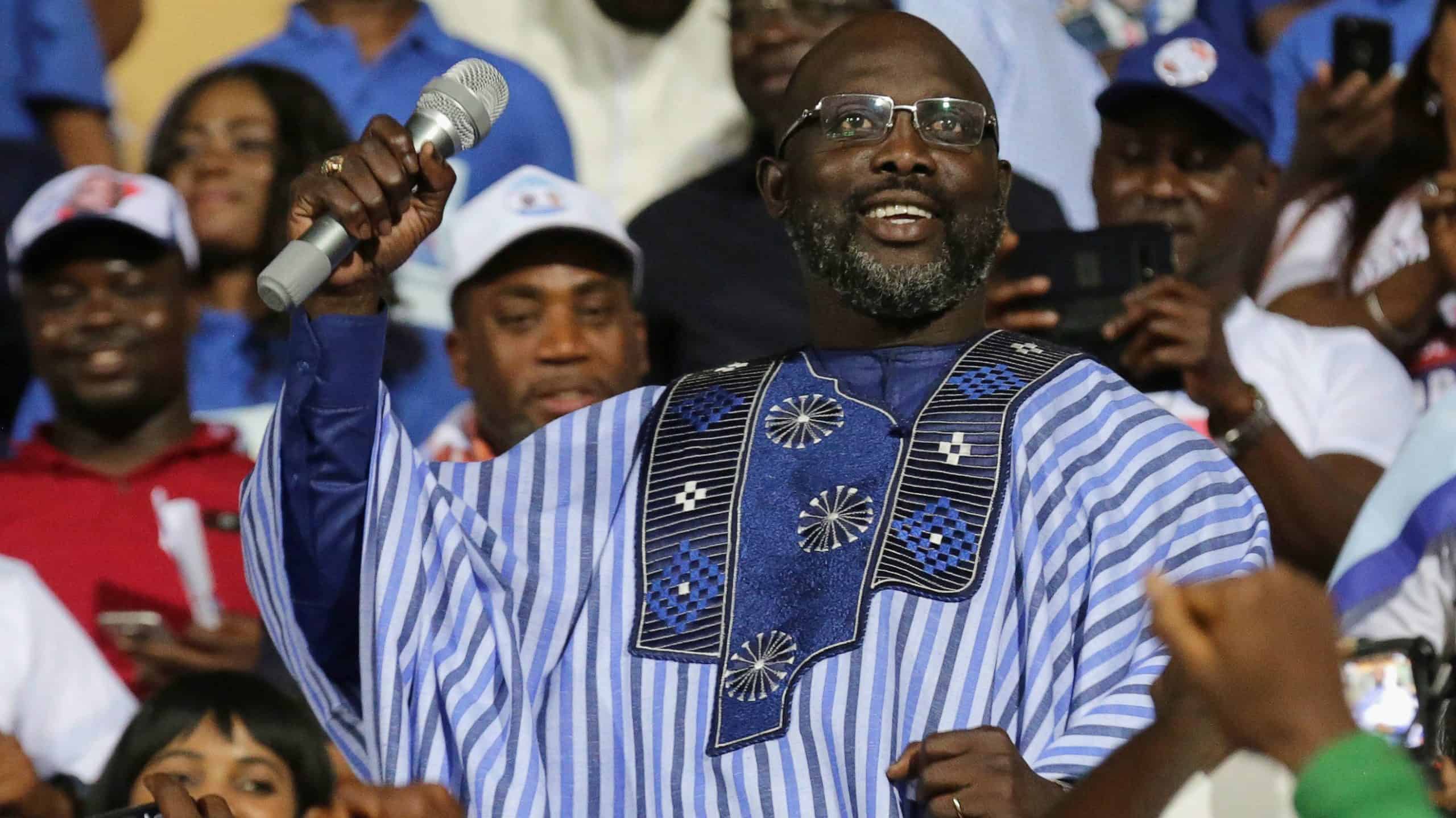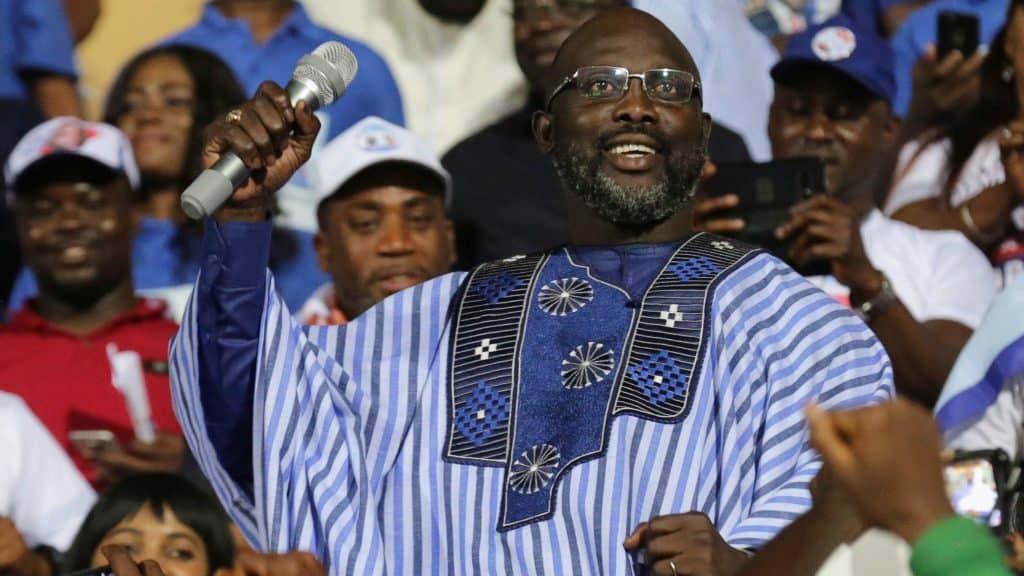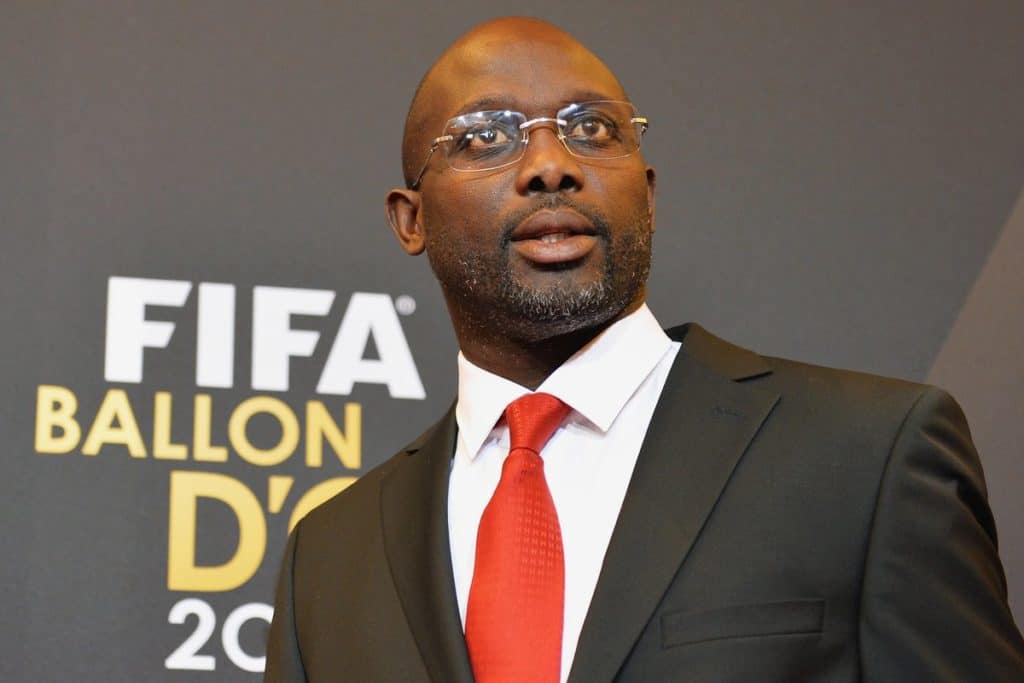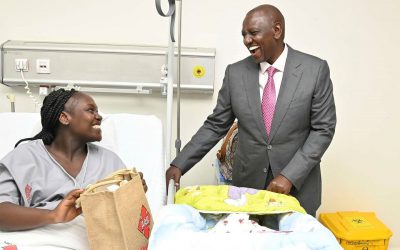When George Weah first ran for President of Liberia in 2005, the air of sentimentality accompanying his candidacy was palpable; after all, he was only the most popular Liberian citizen at the time and arguably one of the greatest footballers to have ever come out of Africa. His decorations on and off the football field preceded him and the world held its breath to see if Liberia will indeed elect an uneducated inexperienced politician riding on his footballing prowess to lead the country out of decades of civil war and into economic prosperity. In the end, only 40% of the country’s citizens were willing to take that gamble; the majority of Liberians voted for the experienced hand of Ellen Johnson Sirleaf.
In 2010, Haitian singer Wyclef Jean also declared his interest in the presidency of disaster-stricken Haiti, and while comparisons with George Weah were drawn, George had made several big moves that had discredited any comparisons with Wyclef. George Weah had gone to DeVry University in the USA to earn a degree in Business Administration and he had dipped his feet into the political reality of his country. He got involved in the Senatorial bye-election in Monterrado County and later declared his candidacy for Vice-President with Winston Tubman in 2011 against Ellen Johnson Sirleaf. Once again, he lost, and he plugged himself even stronger into politics and eventually won a landslide election in 2014 as Senator for Montserrado County before re-launching his presidential bid in 2017.
Now that the elections have been concluded and congratulations are pouring in from across the world, it is important to assess the importance of George Weah’s election as President of Liberia. Here are five key takeaways:
- Popularity is insufficient
If popularity were sufficient, George Weah would have emerged as President 12 years ago. His prowess on the global footballing stage was second to none, and he was widely revered at home as a shining light. Since 2005, several more popular figures have attempted political careers with varying levels of success, but mostly popularity has not worked, otherwise Wyclef Jean will be running Haiti and Kanye West will be strengthening his campaign team for 2020. Yes, Donald Trump emerged president in the USA, but that had more to do with Hillary Clinton being equally unpopular, Vladimir Putin being very involved and portions of White America standing up for their values.
- Credentials still matter
Standing next to Harvard-trained Ellen Johnson Sirlef, “Mister George” looked nothing more than an illiterate footballer in a suit. It did not help his cause that his best attempt at claiming an education was a phony degree in Sports Management from an unaccredited Parkwood University in London. When he returned with his degree from DeVry, there were no questions. So, education might not be all that, but it still matters.
- Experience is invaluable
The best qualification for leadership is leadership experience. Beyond being captain of the Liberian national team and serving as its interim manager, there was not much else that George Weah was bringing to the table in 2005 or 2011. But his Senatorial experience, much like Barack Obama’s in 2008 made the difference in 2017. Grassroots politics might not be glamorous, but it counts.
- Citizens still vote with their hearts
Contrasting George Weah’s credentials with Vice President Joseph Boakai’s reveals the wide gulf in governing experience between the duo. Boakai served as the country’s Minister of Agriculture from 1983-1985 and chaired the West African Rice Development Association during the same time. He subsequently served as Managing Director and later Chairman of Liberia Petroleum Refinery Company, then Chairman of Liberia Wood Management Corporation and consultant to the World Bank, yet he lost to George Weah. It can be argued that 12 years as Vice President had led to allegations of corruption and fatigue from the outgoing government, but Weah’s popularity still stems from the fact that people consider his poor background and lowly upbringing as endearing factors; they believe he is one of them.
- Politics is still a dirty game
And while George Weah will be toasted at the Champs Elysees, more for his close connections to France from his playing days there and his dual French citizenship than for his political manifesto, it must be recalled that he has had to make political sacrifices to be where he is. His incoming Vice President is none other than the wife of disgraced former president, Charles Taylor, and one of his closest political allies, Prince Yormie Johnson, is known to have been a rebel leader during Samuel Doe’s presidency. Weah’s candidacy has not been viewed in the most favourable eyes by all.
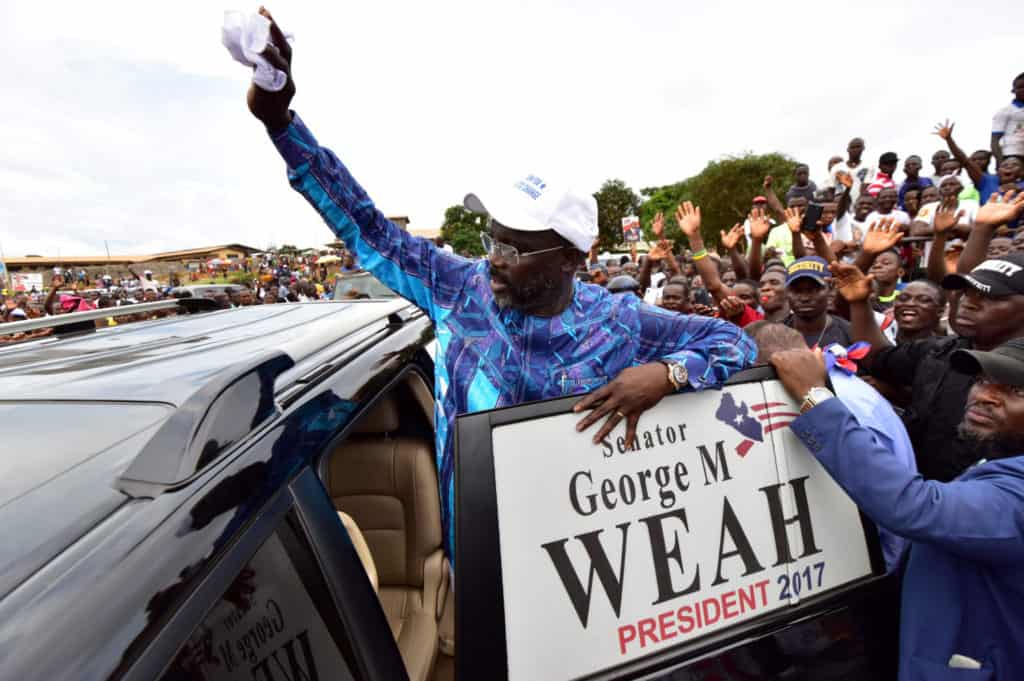
George Weah, greets supporters during a campaign rally in Monrovia on October 8, 2017.
Photo credit: ISSOUF SANOGO/AFP/Getty Images)
For now, congratulations are in order for Liberia’s beloved son; George Weah’s election proves that deep commitment to a cause can yield great results. His commitment to Liberian politics has helped him to rebrand himself as more than a successful footballer; being a great president is his next big challenge at the relatively young age of 51. If he succeeds in giving a voice to the poor, investing in education, lifting Liberia’s struggling economy, advancing infrastructure growth, attracting valuable investment to the country’s manufacturing industry and improving the ease of doing business, he will be revered as much more than “Mister George”. He will be forever remembered as “Mr President”.
Faith Abiodun is the Executive Director of Future Africa.

